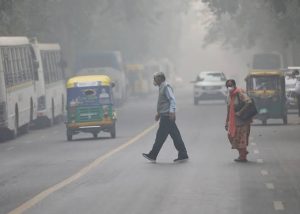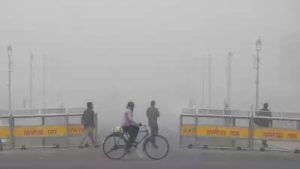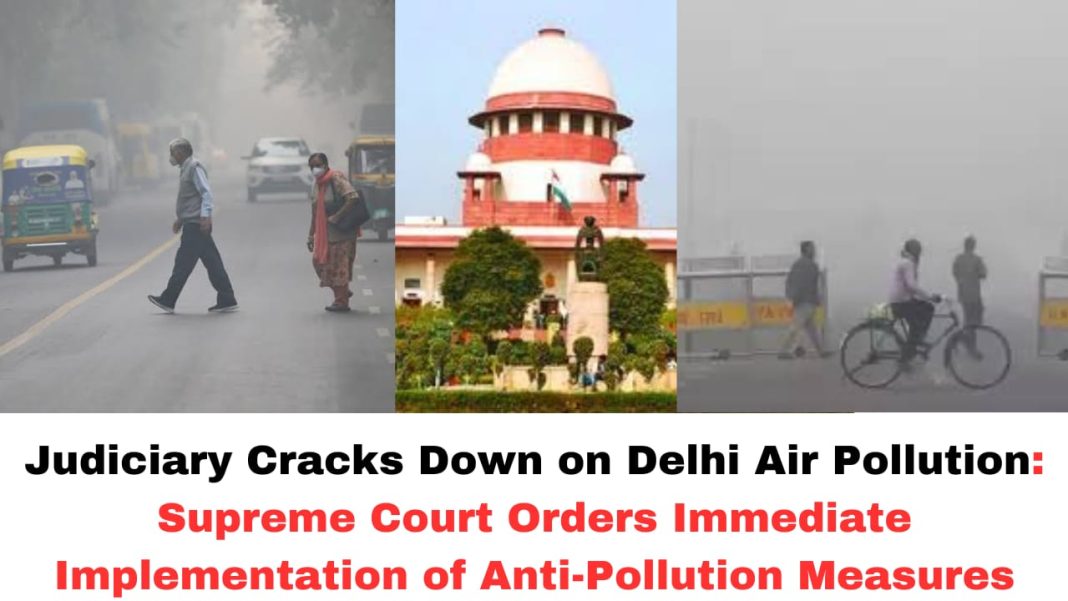Digital News Guru Delhi Desk:
Supreme Court Criticizes Authorities for Lapses in Addressing Delhi’s Air Pollution Crisis
On November 28, 2024, the Supreme Court of India criticized central and state authorities for their “abject failure” in implementing critical anti-pollution measures under the Graded Response Action Plan-IV (GRAP-IV). The court’s sharp observations follow reports highlighting significant lapses in curbing severe air pollution in the Delhi-NCR region.
The Context of GRAP-IV Implementation
Delhi’s air quality has deteriorated into the “severe plus” category, with Air Quality Index (AQI) levels surpassing 450 in recent weeks. GRAP-IV, the most stringent set of anti-pollution guidelines, mandates immediate actions like halting construction activities, stopping entry of heavy vehicles, and shutting schools and colleges. These measures are designed to curb emissions and mitigate health hazards during periods of extreme air pollution.

Despite these provisions, reports submitted by court-appointed commissioners revealed minimal enforcement by authorities. Key measures, such as deploying police teams at entry points to prevent truck entry and banning industrial activities, were poorly executed or delayed.
Court’s Rebuke and Directives
A bench comprising Justices Abhay S. Oka and Augustine George Masih directed the Commission for Air Quality Management (CAQM) to take strict action against officials responsible for these lapses. The court criticized the delayed implementation of GRAP-IV despite AQI levels necessitating immediate action as early as November 12. The bench emphasized that preventive measures should be proactive rather than reactive, reprimanding authorities for their lack of urgency.
The court also stressed the need for technological interventions, urging the central government to collaborate with ISRO for real-time data on stubble burning. This data would help states act swiftly against farm fires, a significant contributor to Delhi’s pollution.
Broader Implications and Future Steps
The bench clarified that Stage IV restrictions would remain in force until further orders, regardless of temporary AQI improvements. This stance reflects a broader commitment to sustainable pollution management, moving beyond ad-hoc measures. The court has also mandated the establishment of grievance redressal mechanisms, allowing citizens to report violations of anti-pollution directives.

Moving forward, authorities must demonstrate greater accountability and efficiency. Enhanced inter-agency coordination, public awareness campaigns, and robust enforcement of pollution control norms are critical to ensuring a healthier environment for Delhi residents.
This ongoing issue underscores the urgent need for long-term solutions to Delhi’s chronic air quality crisis. While judicial intervention can push for immediate action, sustained political and administrative commitment will be key to addressing the root causes of pollution.
You May Also Read: Rashmi Shukla Returns: Controversial Cop Reinstated as Maharashtra’s DGP








